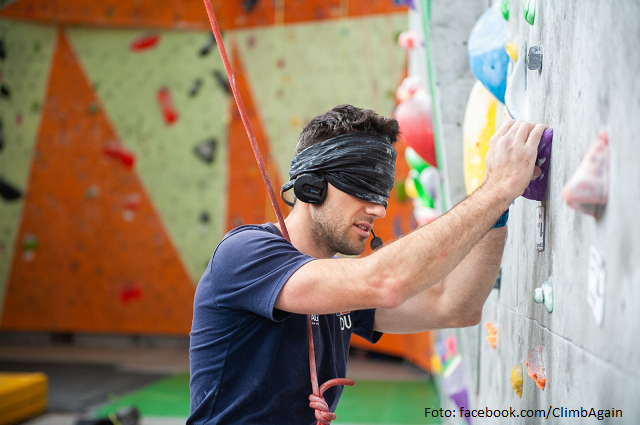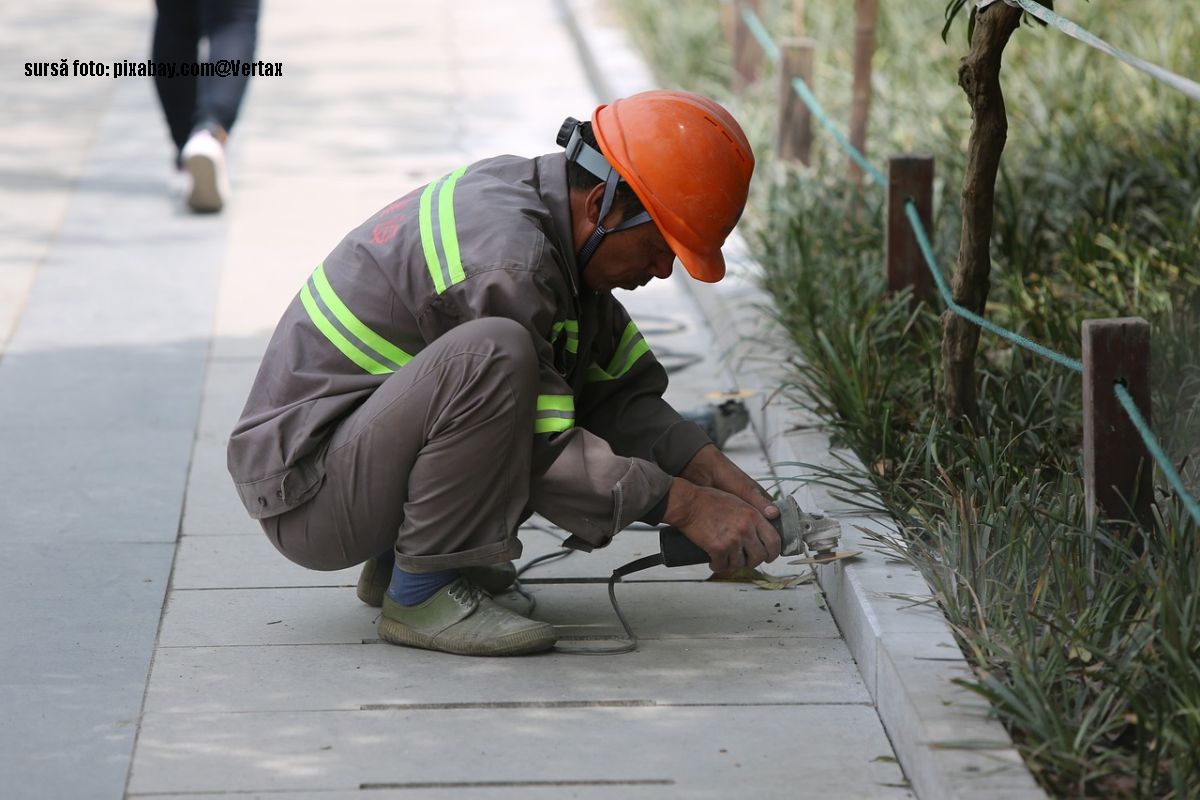Free Climbing, from Sports to Therapy
Climb Again in Bucharest is a sports club for children and youth with disabilities

Roxana Vasile, 09.08.2023, 14:00
Climb Again in Bucharest is a sports club, founded and managed by Claudiu Miu, former free climbing champion. It is an athletic club started in 2014, which offers free climbing therapy for children and youth with disabilities, such as sight impairment, hearing impairment, physical disabilities, or autism spectrum issues. At Climb Again, civic action is supported by regular people. More to the point, the payments and the subscriptions for regular clients go towards paying for treatment for youth with disabilities.
Razvan Nedu, a trainer with Climb Again, told us about the therapeutic benefits of free climbing:
“This is a sport that forces you to be in the moment, to be there, to understand exactly what is happening with your body, it makes you aware of the limiting fears you have, or create for yourself, which you may not realize you have, or that this can be an easy thing to do if you stop being afraid. It makes you trust people, and learn to communicate with them, because free climbing is a sport where one person climbs, the other secures them with a rope, keeps them safe, so this is a team sport. For people with disabilities, as well as with regular people, free climbing is a sport where the climb is standardized, but peoples abilities differ. You may be taller, stronger, more flexible, you may or may not be able to see, you have paralysis, or you miss an arm, or a leg. You learn to get by in your own way, you learn to adapt to what your body is able to do, in order to make that climb. Its exactly like real life. You have to do things for yourself.”
Contrary to popular belief, free climbing is not an extreme sport. It means climbing a rock wall or an indoor wall with no tools, trying to make it to the top without falling. As long as the climber and their partner adhere to all the safety features, the risk is zero. But that is not all. For people with disabilities, the physical and psychological benefits can be great. Here is Razvan Nedu explaining:
“The focus is not on what you cannot do. If you cant see the grip points, someone will tell you where they are. If you cant lift a leg enough, we either work on your flexibility, or find another way to position your hands, which makes things easier. This is very much about finding solutions. People with disabilities see these problems, and they dont find solutions. They get stopped in their track by seeing too many barriers, too many shortfalls. In climbing you have a lot of problems, you have various paths that you have to climb and solve, and they force you to find solutions. And this gets carried over into real life. If you start finding solutions for a climb, there is no way that is limited to one or two hours a week of climbing. You cant find solutions only there, and not find solutions for yourself in the rest of your life.”
In free climbing, youth with disabilities gain courage in their own strength, and have an escape from the glass cage they are often in, afraid that they may not be able to adapt to a sometime hostile natural or social environment. At the same time, climbing shoulder to shoulder with regular kids, they understand that they are no less than their peers. Razvan, who speaks next, was one such kid, a living example.
“Almost 7 years ago, Climb Again had a tour with a mobile climbing wall, visiting schools for the visually impaired, and they came to my high school. Back then I wanted to exercise, and I was doing so, and I liked climbing, it was more attractive than a fitness gym. I wanted to do that, but I liked climbing much better, and I kept at it. And when I went up a rock wall for the first time, I was totally hooked. I cant say that I had special skills, or that I stood out. Claudiu, the Climb Again founder and the coach of the team, told me I should go to competitions, see what they are like. And I did! My performance was nothing special at first, but I really wanted to grow.”
And grow he did.
Razvan Nedu, as you probably realized by now, is visually impaired severely. Doctors say that his vision is about 1% of normal. During the day, he told us, everything looks like abstract art, meaning he can make out light and shadow, and he can realize what is going on around him only by extrapolation. At night, everything is black with white dots. He loves going around to schools for the visually impaired to teach people to use the white cane. But, ever since hes discovered free climbing, he cannot imagine life without it. He is no a coach at Climb Again for all kinds of clients, with disabilities or without. He is a member of the National Paraclimbing Team. He has a multitude of medals and cups won in world paraclimbing championships. He has climbed the Mont Blanc, the Elbrus, the Aconcagua, and the Matterhorn.
“Limitations are much more in our heads than physical. We believe we cannot do certain things, and so we dont. When we start ceasing to think about this, and start finding solutions, then we start getting things done. My message to kids is that nature is wonderful, just as the world in general. It would be great to discover it, seek it out and discover it, to not be afraid, but do it smartly, not throw ourselves headlong into things. If you cant swim, you dont just throw yourself into a river. I have to learn how to swim, take it easy, discover it, and enjoy every sensation, because it is a unique and special thing. And when I take it easy, when I realize it takes time, then I can take the time for small steps, and I can get further ahead than I could ever believe at first. All you need is consistency.”






























